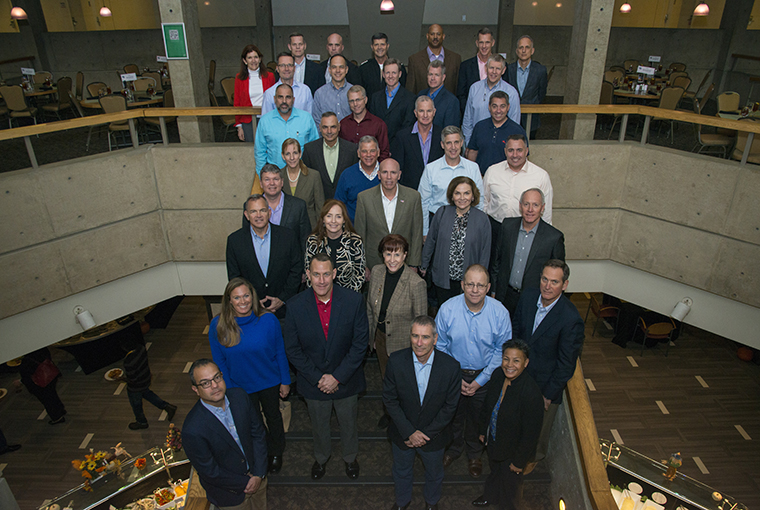College of Leadership and Ethics elevates flag and senior-executive leader development

How do you give two-star admirals and senior civilian executives some time and space away from their offices to think intently about leadership?
The College of Leadership and Ethics at U.S. Naval War College believes it has developed an effective approach.
In November, the college conducted an innovative one-week course for 32 senior Navy officials that focused on expanding senior leader thinking and decision-making abilities and also on strengthening relationships at the flag level.
The leader-development program -- called Partners in the Navy Profession, Intermediate Flag and Executive Course, or IFLEX -- is expected to become an annual offering.
The intent of the course was to invest in leader development, said Peg Klein, dean of the College of Leadership and Ethics.
“There are a lot of studies in the corporate world that say that executives are more effective when they have things like mentoring and coaching and leader development courses,” Klein said.
“We wanted them to understand their role as members of the profession of arms. So much of the trust of the American people depends on their ability to lead ethically,” she said.
The college’s Leadership and Ethics faculty conducted surveys to understand what previous flag officers said they needed. “Our desire was for this generation of flag officers to erase those gaps,” said Klein, who is a retired rear admiral.
The inaugural course was held in November 2017. Expanding on that model, Leadership and Ethics faculty conducted the second round this year at the National Conference Center in Leesburg, Virginia.
The course was the vision of Vice Chief of Naval Operations Adm. Bill Moran, who challenged the college’s leadership faculty to develop it while visiting Newport in the spring of 2017.
Olenda Johnson, professor in the College of Leadership and Ethics, still has the napkin on which a small group jotted down the initial ideas over dinner with Moran. It’s framed on her office wall.
The result was a course specifically intended to be unconventional.
“Our framework for the course was to move them from discovery to disruption to reframing and then fortification,” Johnson said.
“We deliberately designed it to engage these leaders in a way that they shift from ‘receive mode’ into thinking in an active way.”
In his email inviting the senior leaders to the event, Moran wrote, “You can expect a challenging week of disruptive engagement, peer interaction, facilitated discourse and directed reflection.”
Klein, Johnson and their colleagues were pleased to receive feedback from participants showing them that their strategy hit the mark.
Rear Adm. Bette Bolivar, commander of Navy Region Southeast, called the course “enlightening and thought-provoking” in a recent email.
“The course was interactive and collaborative and provided us with the tools to take a different perspective on addressing bias, asking the unasked questions, classifying challenges and acknowledging cognitive complexity,” Bolivar said.
Participants were assigned homework before the workshop even began: They filled out the Hogan Leadership Forecast Assessment, which evaluates personality in terms of strengths, challenges and motivations. Afterward, Leadership and Ethics faculty members spent two to three hours debriefing each participant on his or her results.
Another aspect addressed in the course was the “lonely at the top” phenomenon.
In other words, as leaders move up the career ladder, they have fewer peers around them every day who are able to provide feedback. This course made a point of introducing flag and senior executives to each other to create a network that they can use later.
“When you are a two-star, who do you have frank conversations with? A lot of these people didn’t know each other until they got into the room,” said Lt. Col. Erich Kessler, who teaches in the College of Leadership and Ethics.
During peer-to-peer coaching sessions, “They had an opportunity to just talk about things that are important to them with their peers that they can’t necessarily share with anyone else in the profession,” Kessler said.
Moran also asked the college to develop a leadership course for three-star leaders.
Known as the Advanced Flag and Executive Course, or AFLEX, that offering debuted this summer. The event took place in Potomac, Maryland, from Aug. 12 to 15 under the title Navigating Uncharted Waters.
●●●
The College of Leadership and Ethics was established in April 2018 at U.S. Naval War College by Chief of Naval Operations Adm. John Richardson. One of the college’s missions is to shape and oversee all flag officer leadership development.
More information on flag officer development is available at the College of Leadership and Ethics.
